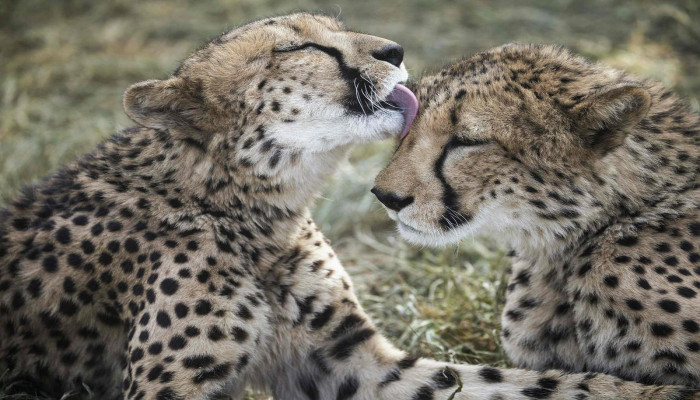India and Namibia sign MoU on cheetah relocation pact
- In Reports
- 09:27 PM, Jul 20, 2022
- Myind Staff
India and Namibia on Wednesday signed a Memorandum of understanding(MOU) on Wildlife Conservation and Sustainable Biodiversity Utilization. This agreement will pave the way for the reintroduction of cheetahs into India's wildlife.
Under the agreement, India is expected to get a dozen of cheetahs from Namibia. It is the first pact signed anywhere in the world for the transcontinental transfer of such large numbers of carnivorous animals.
The main goal of Cheetah reintroduction project in India is to establish viable cheetah metapopulation in India that allows the cheetah to perform its functional role as a top predator and provides space for the expansion of the cheetah within its historical range thereby contributing to its global conservation efforts.
A senior Environment Ministry official informed that the first batch comprising four male and as many female cheetahs will arrive from Namibia in August.
The agreement was signed between Environment Minister Bhupender Yadav and Namibia's Foreign Minister Netumbo Nandi-Ndaitwah. "Happy to share that India has signed a historic MoU with Namibia to promote Wildlife Conservation and Sustainable Biodiversity Utilization. The MoU seeks to promote conservation and restoration of cheetah in their former range from which the species went extinct", tweeted Union Environment minister Bhupendra Yadav.
"Cheetah as a flagship species will lead to greater focus on the status of dry-open forest/savanna ecosystems and the need to restore and manage them. Cheetah reintroduction would also greatly enhance local community livelihoods through eco-tourism prospects in the long term. Completing 75 glorious years of Independence by restoring the fastest terrestrial flagship species, the cheetah, in India, will rekindle the ecological dynamics of the landscape," he added.
Taking to Twitter, EAM Jaishankar said, "Agreements signed today on the reintroduction of Cheetahs and Forensic Sciences cooperation were notable". High Commissioner of India to Namibia, Prashant Agarwal said, “The high commission of India has been privileged to facilitate this agreement, which would also enable the transfer of a few Cheetahs from Namibia for introduction back into India’s wilds. Cheetah is the only large carnivore that has gone extinct in India post its independence, and their introduction back has a special significance as India marks its -75th Independence anniversary this year".
"This unique intercontinental trans-location would be the first-of-its-kind project ever and therefore has global attention. It will reaffirm our shared commitment to conservation. These Cheetahs would be the goodwill ambassadors of Namibia, and this friendly gesture on part of Namibia is deeply appreciated by the people of India”, he added. He further thanked the Namibian authorities for their support.
In 1952, the Indian government officially declared the Cheetah extinct in the country. Namibia has the world's largest population of cheetahs.
According to the pact, the two countries will share and exchange expertise and capacities to promote cheetah conservation in their ranges.
They will collaborate in areas of climate change, environmental governance, environmental impact assessments, pollution and waste management etc and undertake an exchange of personnel for training and education in wildlife management, including sharing of technical expertise, wherever relevant.
Ndaitwah is on a visit to India for the India-Africa conclave. The agreement would promote sharing of good practices in technological applications and livelihood generations for local communities living in wildlife habitats. The agreement will also facilitate the exchange of personnel for training and education in wildlife management, especially in areas of smart patrol, population estimation techniques, and surveillance and monitoring.
Image source: AFP







Comments